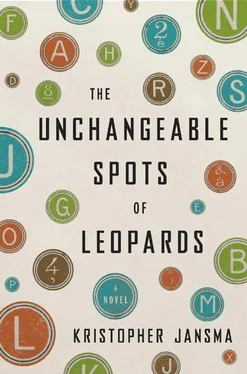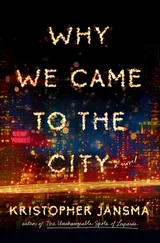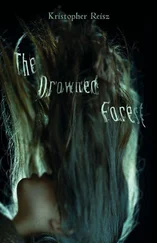Students want you to tell them that everything they’ve learned thus far has been bullshit, served up steaming by people far stupider than themselves. They’ve all made it through high school, where they’re guaranteed to have encountered worthless instructors of all kinds, peddling information that has not even the slightest relevance to their lives at all. So, first things first, you tell them that their suspicions have been correct all along — most of what they avoided learning wasn’t all that important, anyway. But then comes the right hook, now that their guards have been dropped. What is the one thing that is valuable in this world? The ability to lie. That’s right. And they know it well by then, only no one has acknowledged it to their faces before. Language , you go on to explain, is not a boring and worthless system of grammar and spelling, but a tool that can be used to manipulate the weak and the stupid. Students sit up straight in their chairs when they hear this.
A master of the English language, you go on, can convince and manipulate anyone into doing anything the master pleases. You show them Socrates — they know him as just some ancient dead guy. No. You show them a man who uses his superior wit to convince ordinary people to think exactly the way he wanted them to think. You show them speeches by Stalin and Marx, JFK and FDR. You look at the Gettysburg Address. Don’t quiz them on the year and the date — they know that’s what Wikipedia is for. They can get that on their cell phones.
My favorite lesson plan involved simply walking over to the TV and turning on CNN for the hour. Any time of day, even in commercial breaks, the students could identify an endless stream of manipulation. The truth is bent constantly into lies — right before our very eyes and ears, every day of our lives, and they are hip to this fact. Change the channel to MTV and they can see their idols doing the same thing: pop singers who reinvent themselves to seem like the girl next door in one interview and little better than porn stars in the video that follows. Or rappers who back their words with claims of rough streets, so we’ll forget their bank account balances are in the triple millions. And the students idolize these frauds. They dress like them and speak like them because they’re frauds. They’re heroes because they’re good frauds. And the students then reinvent themselves as ever-better miniatures of their fraudulent role models.
Of course, you will occasionally find a young, idealistic kid who believes that art contains truth . This may seem initially to be anathema to your entire being. But these rare souls are even easier to win over. For you will deliver your speeches with amusement, but also with grave concern. Your passion bursts from the heart, which you wear on your corduroy jacket sleeve, and it runs, bloodred, down your jeans and onto your Italian leather shoes. Never take your eyes off these genuine students, for they have not yet been crushed, and you will not crush them. You will nurture this idea that there is truth and beauty behind that veil of lies. Indeed, whenever you draw back that curtain, you will show them that there is Good and there is Right and there is Better Than and there is Best. And if you tell this lie well enough, you may even begin to believe it again yourself. You may even regain a sliver of the innocence and ignorance you treasured once, too. And this is your reward at the end of the day.
But there I go again. Sometimes I forget I’m not in my classroom anymore. We’re having a nice night in a quiet bar, on the fifty-first floor of one of the finest hotels in Dubai. There’s something about this place. It’s the air, I think. Makes you want to fold stories inside of stories inside of stories. But I’ll get to the end, finally, and explain how I got from there to here.
The department chair fired off some empty threats about getting the police involved — but I knew he would never do this because it would require him to admit the truth about the university’s lack of oversight to hundreds of parents, perhaps even to real reporters. So I told him to do what he liked and I walked downstairs. Stepping out onto the rainy streets of New York, I wondered where to go next. A long summer stretched ahead. The downside was, of course, that they wouldn’t let me teach at any of the other city universities now — and I couldn’t exactly put my experience of the past year on a CV. The economy was in the toilet. I was about to turn thirty years old. I was unemployed, friendless, and loveless. My sole possessions were the disaster of my “forced,” “unbelievable,” and “less-than-charming” novella, and the knowledge that I’d spent the better part of a year being someone I actually enjoyed being instead of myself. And I would be damned if I was going to go back.
Just then, I noticed Saiyid, my favorite student, hovering under the awning, smoking a hand-rolled cigarette. The golden tobacco smelled sweet, like dark secrets, and when he saw me looking over, Saiyid happily offered me one.
“Where did you say you were going next year? Hunter? NYU? Columbia?”
“The University of Dubai,” Saiyid declared proudly.
“Ah, good old U-Doob,” I said, though I had never heard a thing about it before.
“My father knows some people who teach there,” Saiyid explained. “You would like it there. The people in the Middle East, they all want to know… what is America, really? You know, Professor. You tell it like it is. You do not pretend this country is perfect and pure and wonderful. You can tell them.”
“America might not be perfect,” I said, not really thinking, “but I’ve always thought it must be a hell of a lot better than anywhere else.” Truth was I’d never left the country in my life.
“My father told me that I had to come to America to see for myself just what the rest of the world wants so badly to be,” he said with a smile. “With all due respect, Professor, how do you know you won’t like Dubai better?”
“I read a lot,” I said, giving him a warm, authoritative pat on the shoulder. “Enough to know I don’t want to be in the Middle East at this particular historical moment.”
“But you said yourself in class, Professor. These things are not all the truth. United Arab Emirates is a friendly, peaceful, democratic country, just like America.”
“Our partners in peace,” I said with a wry smile. He looked back at me — for the first time as a fellow human being and not just my student. And he laughed.
“My father, perhaps he can talk to a friend? They pay a lot of money for American professors in my country.”
And that is how I found myself boarding Emirates flight 24, with Timothy Wallace’s American passport in one hand. As I checked the time on my gold wristwatch, I looked up to see a row of polished clocks, each set to different hours around the world. I’d gotten a little drunk — insurance against the long flight ahead — and so I saluted as I passed the men in army fatigues, with guns the size of me. The sight of them was quickly replaced by the vision of my flight attendant, all almond eyes and smooth, coffee-colored skin. Her name tag said SHAHRAZAD, and she graciously ushered me into the first-class cabin. Saiyid’s father had been generous enough to supply the ticket.
“Professor, please, make yourself comfortable.”
She pulled open a small divider, and I peered into what was set up as a miniature luxury hotel room. I ran my hands over the swirling walnut burl of the countertop, opening a small compartment to find, to my great relief, a fully stocked minibar. My seat was folded down into what resembled a snug twin-sized bed with 450-thread-count sheets and a silk comforter. A wide flat-panel television invited me to surf hundreds of channels, browse the Internet, or plug an iPod into a smartly concealed receptacle. I set my bags in the spacious storage area and lifted the remote control. Scanning through the guide, I felt like the commander of a futuristic battleship, the world at my fingertips. More a part of the next century than the current one.
Читать дальше











